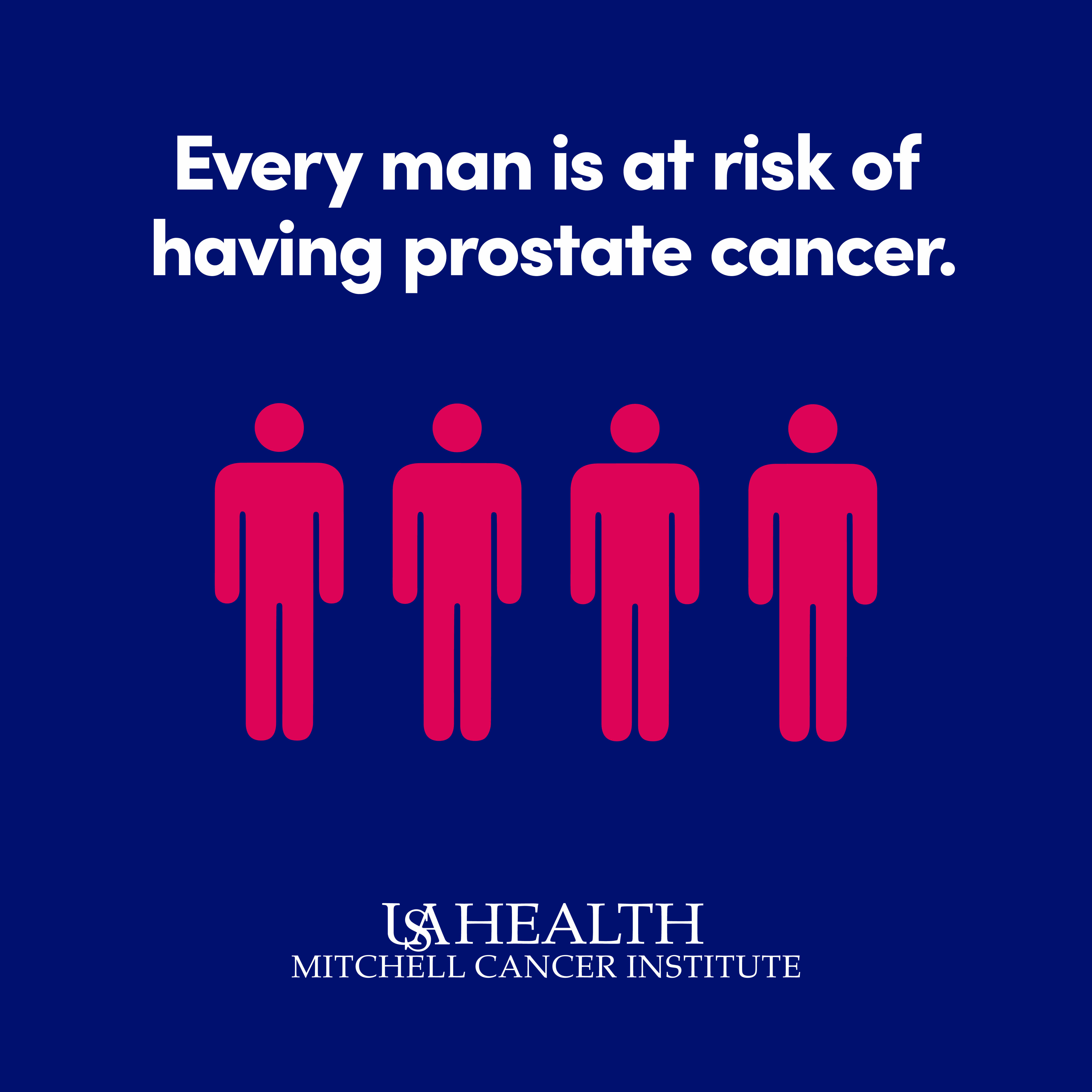USA Health Mitchell Cancer Institute encourages annual prostate screenings to detect cancer early
The American Cancer Society (ACS) advises men to begin annual screenings starting at age 50 for those who are at average risk, or age 45 for men who are considered high risk.
By Jessica Jones
[email protected]
As late-stage diagnoses continue to rise for prostate cancer, the USA Health Mitchell Cancer Institute (MCI) recommends men start screening for prostate cancer annually, depending on their risk factors.

Prostate cancer is one of the leading causes of cancer death in men in the United States, and 1 in 8 men will be diagnosed with the disease in his lifetime.
The American Cancer Society (ACS) advises men to begin annual screenings starting at age 50 for those who are at average risk, or age 45 for men who are considered high risk. Men are considered high risk for prostate cancer if they are over the age of 65, are African American, or have a family history of prostate cancer.
Having a father or brother with prostate cancer more than doubles a man’s risk for developing the disease. Men with more than one first-degree relative who had prostate cancer at an early age should begin screening at age 40.
“Men often have a misconception revolving around prostate cancer screenings. The first step is doing a simple blood PSA (prostate-specific antigen) test,” said William C. Hixson, M.D., radiation oncologist at the MCI.
Because prostate cancer can be asymptomatic, it is important to diagnose early – when it is most treatable. However, if symptoms do arise, men might notice:
- Problems urinating with a slow or weak stream
- A need to urinate more often (especially at night)
- Blood in their urine or semen
- Pain in the hips, back or chest
- Weakness or numbness in their legs or feet
- Weight loss
- Feeling very tired
Once diagnosed with prostate cancer, MCI patients receive consultations within 48 hours.
“At the MCI, it is important for our patients to know their treatment options. Depending on the patient’s diagnosis, staging and lifestyle, we recommend treatment options that not only aim to diminish the patient’s cancer, but are also the best fit for their individual needs,” said Adam J. Huddleston, M.D., D.A.B.R., radiation oncologist at MCI.
In addition to seeing the same physician every visit, prostate cancer patients are supported by an oncology nurse navigator to provide one-on-one guidance. The oncology nurse navigators help identify and eliminate hurdles to shorten delays and ensure timely treatment, as well as connect patients and their families to resources and help facilitate appointments.
“MCI has measures in place to ensure all patients and their families feel supported, heard, and most importantly, not alone,” said Brooke Valentz, RN, BSN, oncology nurse navigator at MCI.
Data from the National Institutes of Health shows that with the guidance of a nurse navigator, prostate cancer patients are more likely to complete treatment, experience improved outcomes and have greater patient satisfaction.




